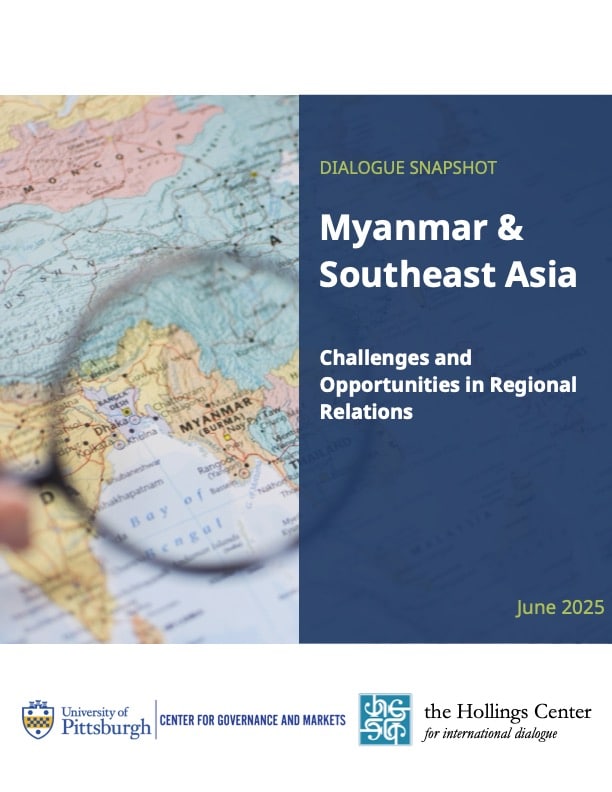DIALOGUE SNAPSHOT REPORT
July 2025
Kuala Lumpur, Malaysia
Dialogue Summary
This dialogue snapshot report summarizes insights from a six-session, closed-door convening focused on the ongoing crisis in Myanmar and its wider implications for Southeast Asia. Drawing on contributions from diplomats, policy experts, and regional stakeholders, the discussions examined the evolving conflict landscape within Myanmar, the growing role of localized governance in resistance-held areas, and the differing understandings of federalism among opposition and ethnic groups. Participants emphasized that while Myanmar’s internal crisis continues to deepen, its regional spillover effects are increasingly shaping political and security dynamics across Southeast Asia.
A key theme of the dialogue was the need for more nuanced and coordinated international engagement. ASEAN’s institutional limits were acknowledged, but national-level responses—particularly from Indonesia, Malaysia, and Thailand—have created potential entry points for pragmatic diplomacy. The United States was urged to recalibrate its Myanmar strategy by engaging with Southeast Asian partners more systematically, supporting cross-border aid mechanisms, and preparing for possible shifts in U.S. foreign policy under a future administration. Participants also raised urgent concerns about the spread of transnational crime and weapons flows, arguing that the instability in Myanmar and Southeast Asia is now directly linked through growing border insecurity.
Taken together, the dialogue underscored that the crisis in Myanmar and Southeast Asia requires a long-term, multi-track response grounded in regional realities. International actors must work across diplomatic, humanitarian, and security sectors to address both immediate needs and the structural conditions enabling violence and fragmentation. Supporting alternative governance structures, enhancing cooperation on transnational threats, and deepening U.S.–ASEAN coordination were identified as key pillars for any sustainable strategy moving forward.
Key Takeaways of the Myanmar & Southeast Asia Dialogue
Federalism remains a contested concept in Myanmar, with differing interpretations among ethnic armed organizations, resistance groups, and civil society actors regarding autonomy, power-sharing, and national identity.
Parallel governance structures are emerging in resistance-held areas, where local communities and political actors are stepping in to deliver basic services such as education, healthcare, and justice in the absence of a functioning central state.
The crisis in Myanmar is increasingly affecting Southeast Asia, particularly through refugee flows, disrupted border trade, and the rise of transnational organized crime across Thailand, Malaysia, and Indonesia.
ASEAN’s institutional approach has been limited, but differentiated responses by member states—such as Indonesia’s diplomatic outreach and Thailand’s quiet facilitation of cross-border aid—offer opportunities for targeted regional engagement.
The United States was encouraged to deepen coordination with Southeast Asian states, support cross-border assistance, and adapt its policy to reflect new, non-traditional security challenges.
Participants emphasized the need for a long-term, multi-track peace process, involving inclusive political dialogue, technical support for emerging governance structures, and stronger regional cooperation on security and humanitarian issues.



